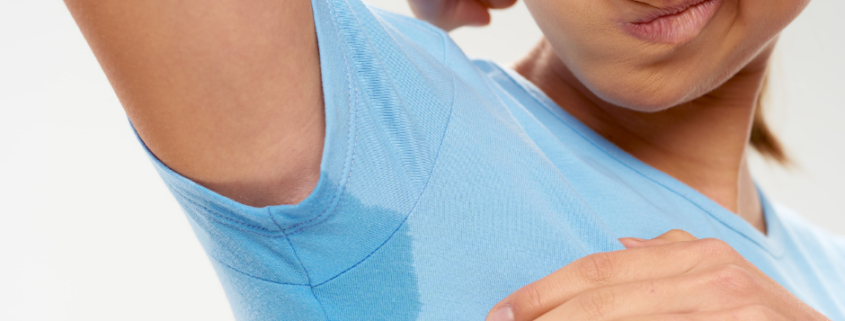All About Hyperhidrosis (excessive sweating)
/in Botox, Laser and IPL /by Mary Beth MartinIntroduction: What is Hyperhidrosis?
By definition, hyperhidrosis is “abnormal excessive sweating involving the extremities, underarms, and face that is unrelated to body temperature or exercise”. This condition can cause extreme discomfort, irritability, and self consciousness.
Continue reading to learn more about hyperhidrosis:
- Symptoms
- Causes
- Treatments
Table of Contents
Is Hyperhidrosis serious?
While hyperhidrosis, or excessive sweating, is not life threatening, it can cause quality of life to decline. No one wants to be in a constant state of worry about sweating, stains, and discomfort. This can lead to not wanting to go out, mild depression, and a lack of self esteem.
However, this is not a serious condition overall unless it is allowed to affect mental health. We also always want to consider possible underlying causes (more on this later).
What are the symptoms of hyperhidrosis?
The main symptom of hyperhidrosis is excessive sweating that happens even without external stressors such as: heat, exercise or stress.
Where does hyperhidrosis occur?
Hyperhidrosis usually occurs on the following body parts:
- Axilla (underarms)
- Hands/palms
- Face and neck
- Feet
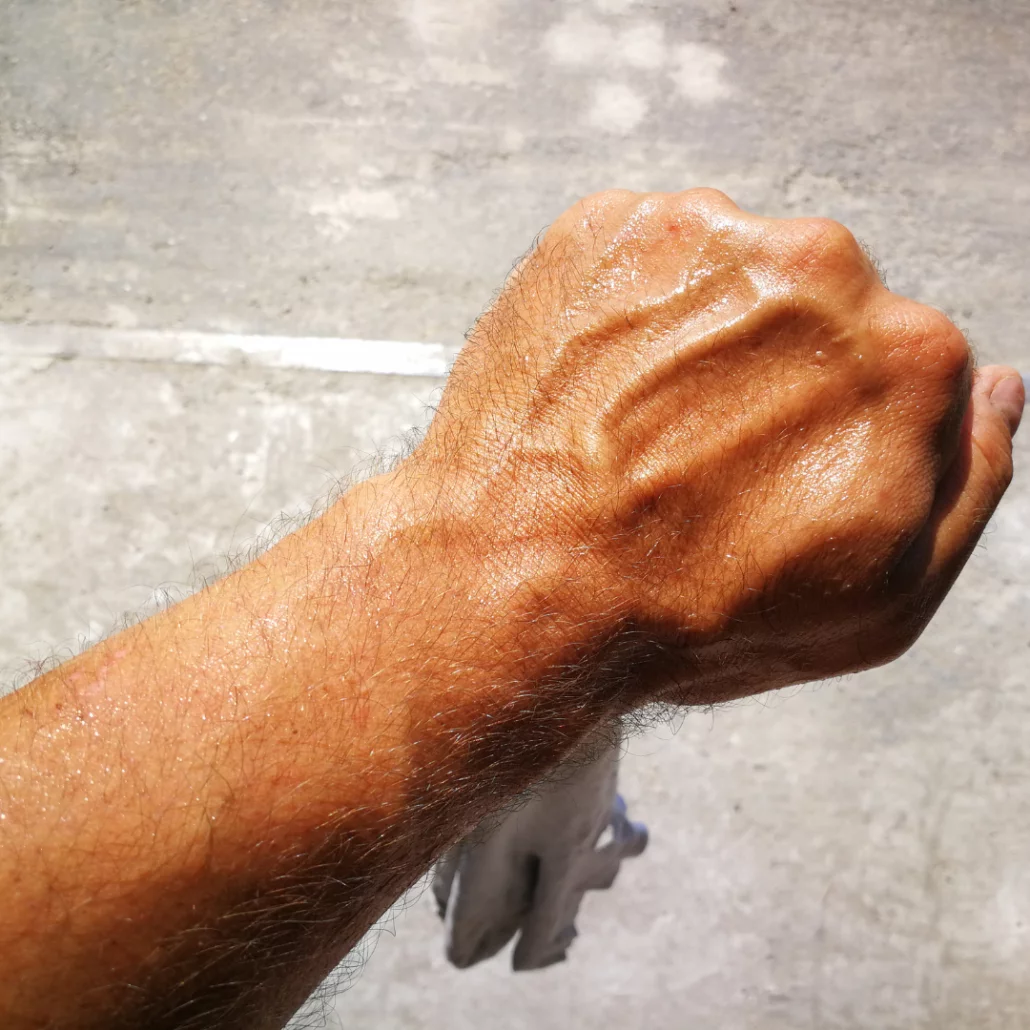
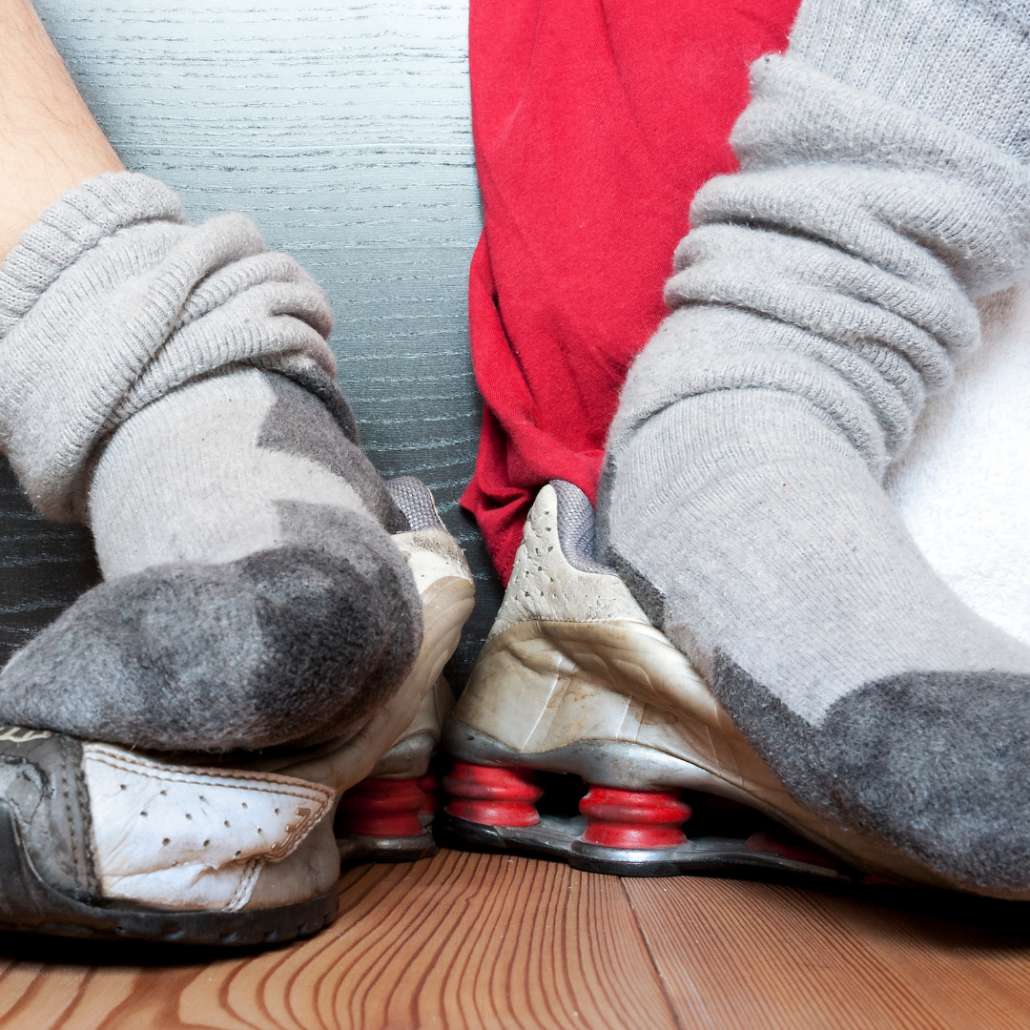
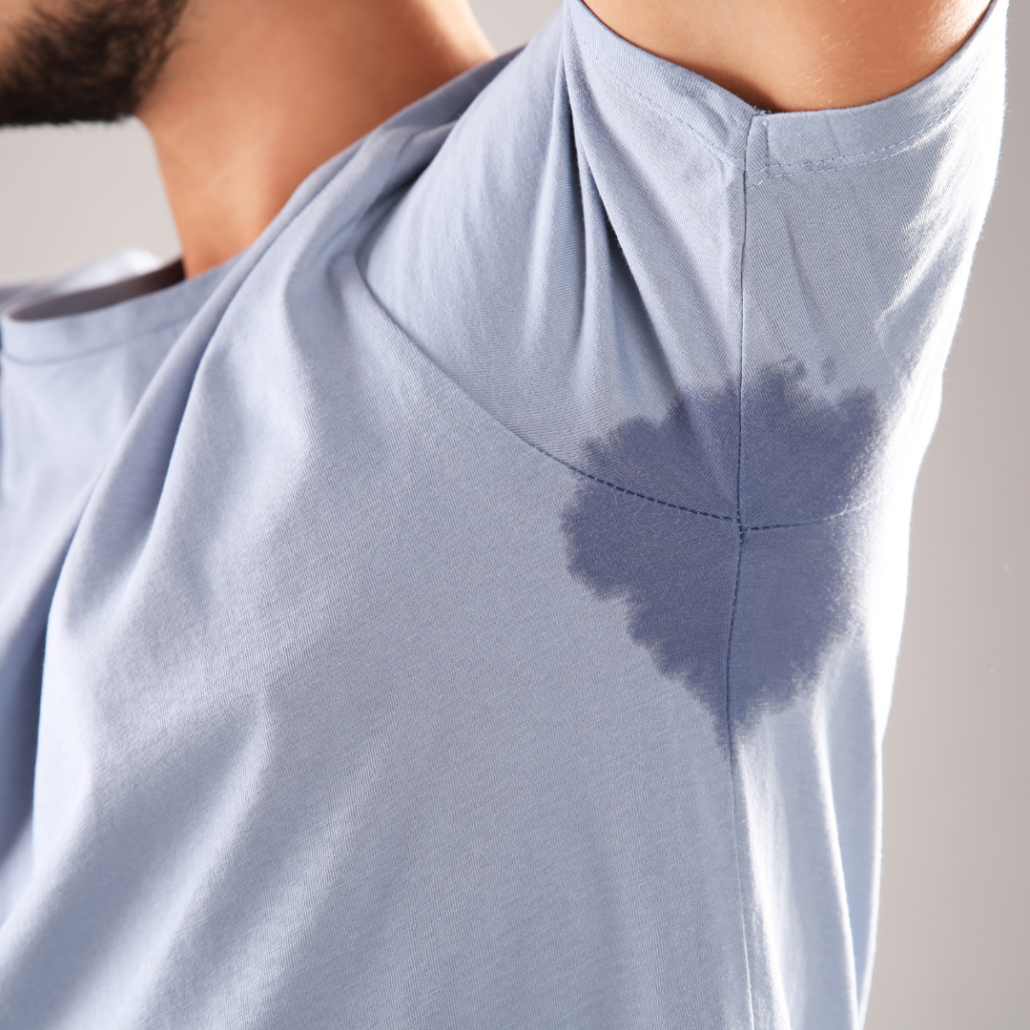
How is hyperhidrosis diagnosed?
Diagnosis for hyperhidrosis must be done by a medical provider (Physician, NP or PA). The medical provider will conduct a physical exam of the patient, ask health/history questions, and then diagnose the patient appropriately. Keep reading to learn about the best treatments for relief of hyperhidrosis.
What happens if hyperhidrosis is left untreated?
Unfortunately, if an individual does not take action either medically or naturally to help cure or relieve hyperhidrosis symptoms, then the condition will mostly likely continue throughout their lifetime.
What causes hyperhidrosis?
There are many different causes to hyperhidrosis, it is best to consult with a provider to ensure you know your individual cause(s), but below are several potential causes:
- Anxiousness, stress, or nervousness that can be uncontrollable
- Athletes that exercise excessively
- Over-active detox pathways
- Faulty nerve signals that cause sweat glands to be over-reactive
- Hormonal changes or imbalances such as pregnancy, menopause
- Side effect of some medications
- Environmental factors such as heat or humidity
Is hyperhidrosis a symptom of something else?
There are many reasons, or underlying causes of hyperhidrosis (as above) and it’s important to address the root cause and not just the symptoms of excess sweating. Remember there is no true harm in excessive sweating but there is an underlying reason for it. There are many different factors that could be contributing and it’s important to see a medical professional that is willing to look at the big picture and not just put a band-aid on it and treat symptoms only.
Is hyperhidrosis genetic?
There is not enough evidence to support that genetics are the main reason/cause of hyperhidrosis. Remember that environmental factors and behaviors can be common in families but this doesn’t mean it’s genetic. It is best to talk with your provider about this since every case is individualized.
Can I cure hyperhidrosis naturally?
It is possible to treat, or at least support causes of hyperhidrosis naturally, but we recommend working with with a licensed naturopathic doctor or holistic medicine practitioner. Generally speaking, natural remedies for hyperhidrosis may include:
- Relaxation techniques like meditation
- Vagal nerve training
- Acupuncture
- Guided detoxes with a functional medicine practitioner
- Diet and lifestyle changes
How can I cure hyperhidrosis?
There are some medical and holistic approaches (mentioned above) to curing or suppressing the symptoms of hyperhydrosis. More medical approaches to hyperhidrosis include:
- Prescription antiperspirant, creams, or wipes
- Nerve blocking medication
- Anti-depressants
- Botox injections
Do Botox injections help hyperhidrosis?
Yes, Botox or (Botulinum Toxin) injections help with hyperhidrosis and excessive sweating particularly in the axilla, palms, and feet. At Elite, we perform these injections for hyperhidrosis, but the cost is not covered by insurance.
We also highly recommend working with a naturopath or functional medicine practitioner to get to the underlying cause. We also understand that sometimes there is no obvious issue and people just don’t want to sweat for big events like an upcoming Wedding or vacation.
How does Botox help hyperhidrosis?
Botox, or Botulinum Toxin medications, are used for hyperhidrosis to block the nerve signals responsible for sweating or excreting sweat. It does not completely stop the sweating but it provides a huge relief for those who suffer from hyperhidrosis. Keep in mind that this only helps with the symptoms of hyperhidrosis and does not cure it.
Which Botox is best for hyperhidrosis?
This is completely up to the provider/injector. All Tox medications work in similar ways even though the drugs are different. It is best to consult with a provider to see which Tox would be best for this. At Elite, we prefer to use either Botox or Xeomin for best results!
Xeomin is a cleaner version of Botulinum Toxin injections and because these are done in high doses it theoretically has a higher safety profile.
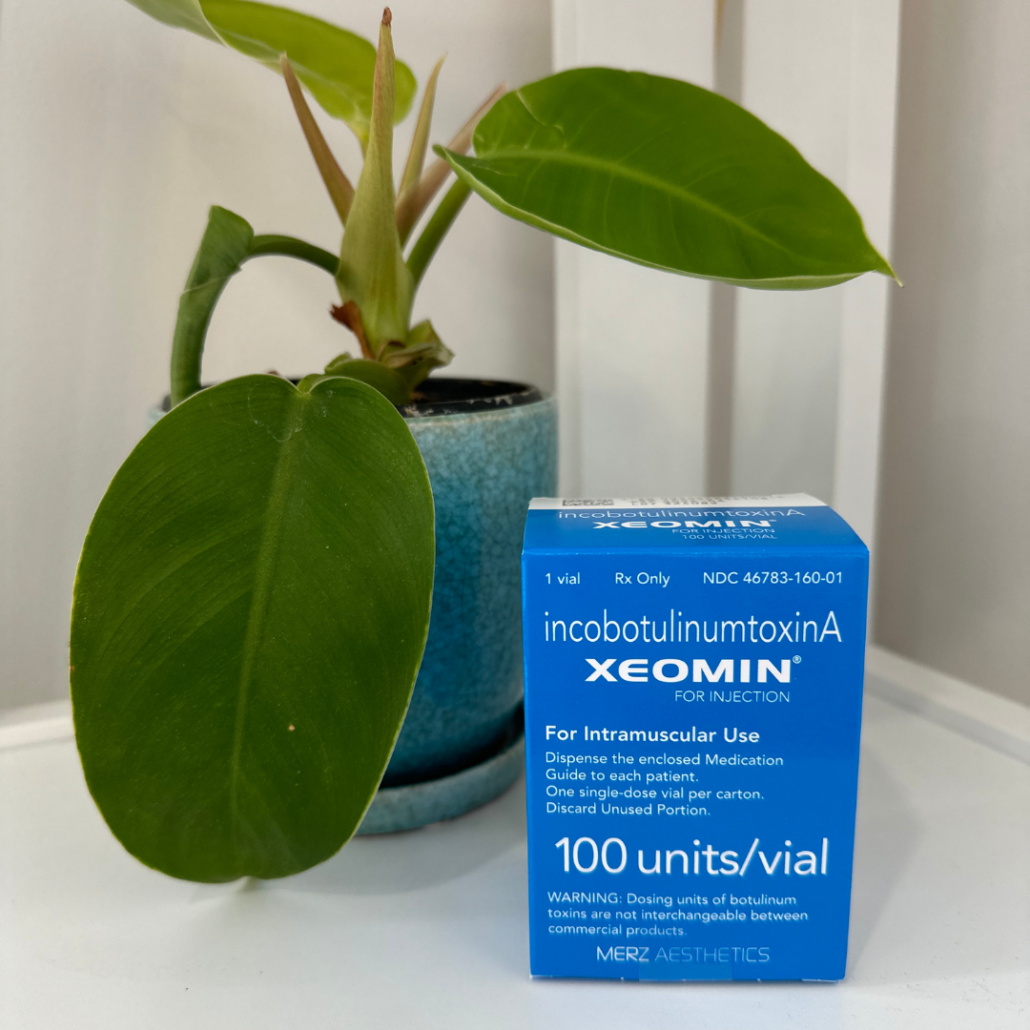
How many units of Botox do you need for underarm hyperhidrosis?
Since the axilla (underarm) area is larger, 50 units per axilla is standard. However, this amount can differ per individual and their symptoms. We perform a “sweat test” beforehand to help guide us in injecting the sweat glands that are the most active, in order to give our clients best results!
How long does Botox for hyperhidrosis last?
On average, botulinum toxin injections for hyperhidrosis last 3-4 months but can last up to 6. To learn more about Botox overall, click the button below.
Is Botox the best cure for hyperhidrosis?
Keep in mind that Botox injections work great for suppressing the symptoms caused by hyperhidrosis (excessive sweating). However, botox injections do not cure the condition. You will have to continue to get the injections until the root cause of the hyperhidrosis is addressed.
